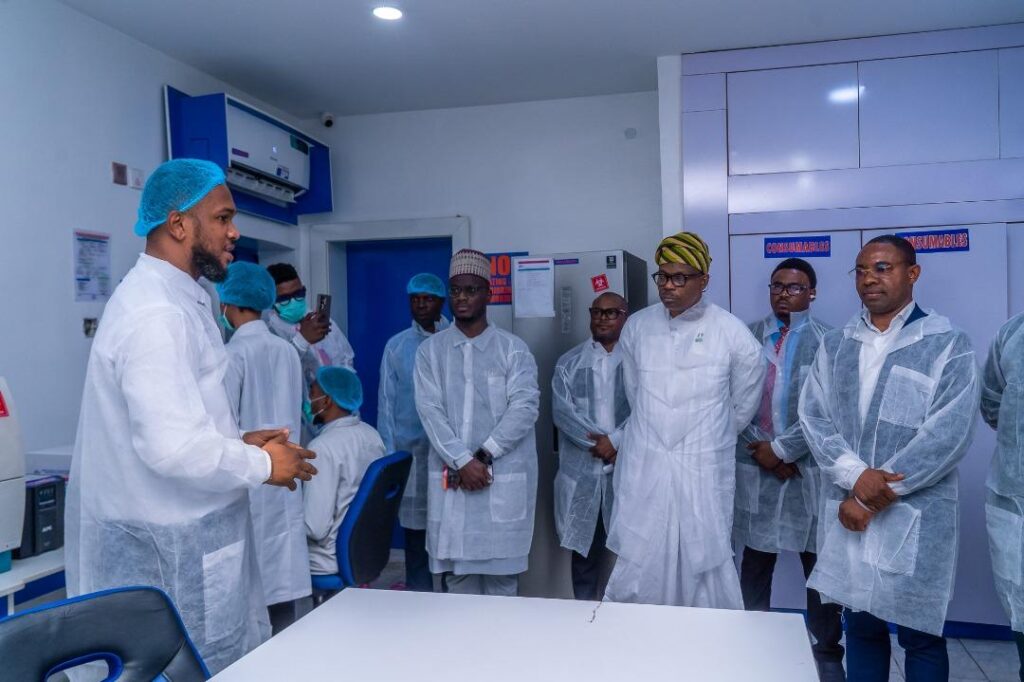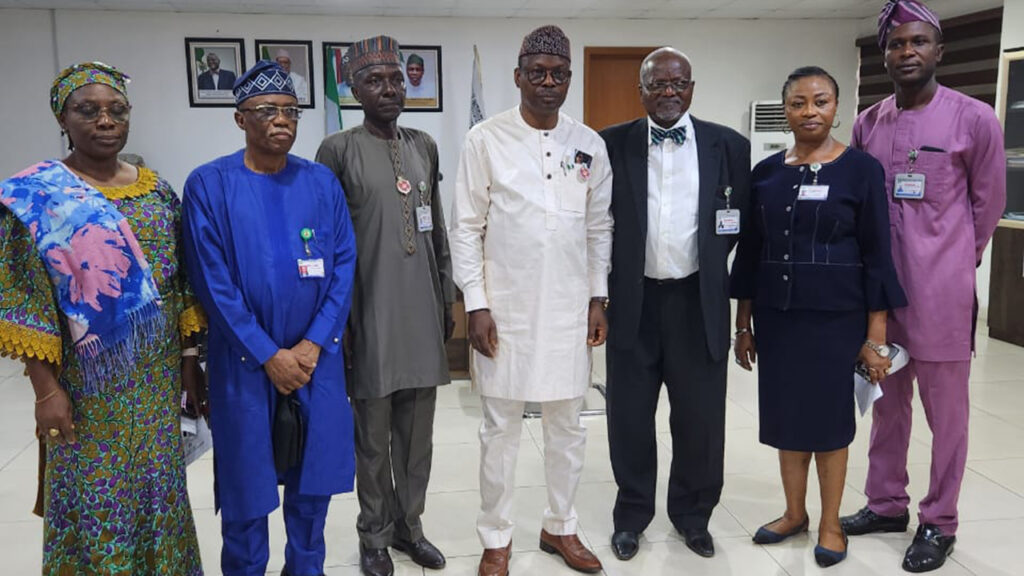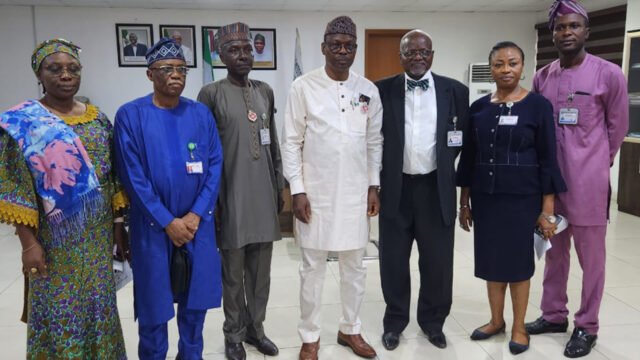In Nigeria today, one of the biggest challenges facing the health sector is not always the availability of doctors or even the price of treatment, but the accuracy of diagnosis. Far too often, illnesses are misdiagnosed or detected too late, leading to avoidable deaths and prolonged suffering. Against this background, a leading health-technology firm has restated its long-term plan to strengthen the nation’s diagnostic capacity.
At a media briefing, the firm explained how it intends to improve access to quality laboratory services, expand the reach of diagnostic tools beyond major cities, and train more professionals in advanced testing methods. The message was clear: diagnosis is the foundation of good healthcare, and Nigeria must invest in getting it right.
Table of Contents

Scaling Up Access Through Technology and Partnerships
The company’s vision is anchored on three pillars: local manufacturing of diagnostic tools, wider laboratory coverage, and capacity building for health workers. Each of these pillars is being developed in partnership with local and international stakeholders.
First, the push for local manufacturing is expected to reduce the heavy reliance on imported diagnostic kits. Import delays and rising foreign exchange costs have long hindered timely access to testing materials. By producing some of these tools locally, the firm believes Nigeria can ensure faster availability, lower costs, and stronger supply chain security.
Second, the firm intends to scale up physical access by setting up more satellite laboratories in underserved areas. Many communities, especially in rural states, lack diagnostic centres within a reasonable distance. As a result, patients often travel long hours—or never travel at all—just to take basic tests. By situating labs closer to the people, the company hopes to cut down delays, increase the number of tests done, and make early diagnosis more routine rather than an exception.
Third, there is a strong focus on training. Laboratory scientists, technicians, and community health workers are to be enrolled in capacity-building programmes covering molecular testing, quality assurance, and data management. This is particularly important as technology evolves rapidly. “You cannot buy the best machines and expect results without investing in people,” one of the firm’s directors noted.

Hurdles to Overcome and the Government’s Role
While the plans sound ambitious, the firm openly admitted the challenges that still stand in the way. Infrastructure remains the most glaring. Unstable electricity supply makes it difficult to run sensitive diagnostic machines that require uninterrupted power. Poor road networks also make transporting samples risky, as delays can compromise test quality. Cold chain storage, needed for biological samples, is another weak link in many facilities.
The regulatory environment also presents hurdles. Lengthy approval processes and import duties on components increase the cost and time of setting up new labs. There is also an inconsistency in quality control across the states, leading to uneven standards.
For these reasons, the firm is urging stronger government backing. Streamlined regulatory processes, fiscal incentives like tax breaks, and direct investment in health infrastructure are among the supports being requested. The company emphasised that government action, coupled with private sector innovation, is the only way Nigeria can achieve sustainable diagnostic advancement.
The call also extended to state governments, many of whom control primary healthcare centres. By integrating diagnostic services at the grassroots, and not only in big teaching hospitals, Nigeria can reach the millions of people who currently fall outside the diagnostic net.

Why It Matters for Nigeria’s Health Future
Improving diagnostic capacity is not just a technical health issue; it is a matter of national development and human dignity. Without accurate tests, doctors often resort to guesswork, prescribing medicines that may not match the illness. This contributes to antimicrobial resistance, wasted resources, and avoidable deaths.
Timely and accurate diagnosis is also key to containing epidemics. In the past decade, Nigeria has faced repeated outbreaks of diseases such as Lassa fever, cholera, and COVID-19. In each case, weak diagnostic capacity slowed down the response and allowed diseases to spread further. Strengthening labs now would mean faster detection, quicker isolation of cases, and more effective control of future outbreaks.
Beyond infectious diseases, there is the growing burden of non-communicable conditions such as cancer, hypertension, and diabetes. These require early detection for effective management, but millions of Nigerians do not get tested until it is too late. If diagnostic services are scaled, more people will receive treatment earlier, reducing hospital admissions, cutting costs, and saving lives.
The economic benefits are also substantial. By producing some diagnostic tools locally, Nigeria would create new jobs, stimulate industrial growth, and reduce foreign exchange losses. Trained professionals would build careers in advanced testing, and patients would spend less on avoidable treatments. For a country seeking to diversify its economy and improve health outcomes, the diagnostic sector offers a double win.
The firm’s commitment is therefore more than a corporate pledge—it is part of a larger vision to align Nigeria’s health system with global standards. If the government, the private sector, and communities can work hand in hand, the dream of reliable, affordable, and widespread diagnostic services could soon move from plan to reality.
Join Our Social Media Channels:
WhatsApp: NaijaEyes
Facebook: NaijaEyes
Twitter: NaijaEyes
Instagram: NaijaEyes
TikTok: NaijaEyes














![Mr Macaroni Drops Blistering Remark: ‘APC Filled with Most Corrupt People’ as He Slams Tinubu’s Controversial Pardon for Criminals=]] Mr Macaroni](https://naijaeyesblog.com/wp-content/uploads/2025/03/Mr-Macaroni-1-1-180x135.avif)

![Chaos Erupts in Abuja Hotel as BBNaija Star Phyna Sparks Fierce Scene Over Alleged N200,000 Dispute [VIDEO] Phyna](https://naijaeyesblog.com/wp-content/uploads/2024/11/A-Picture-of-Phyna-BBNaija-180x135.jpg)























